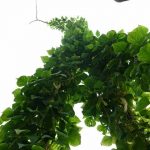“The only real food we can eat is food from farms.”
That was the message from Vandana Shiva as she addressed the crowd at Berlin’s Weltacker 2000m², a plot in the Pankow district set up to highlight the agricultural means needed to feed the world’s population.
For decades, Shiva has been advocating for biodiversity, the rights of farmers, and seed-saving. As the founder of the Navdanya movement, which promotes organic farming and opposes corporate seed patents, she’s become a leading figure in the area of food sovereignty.
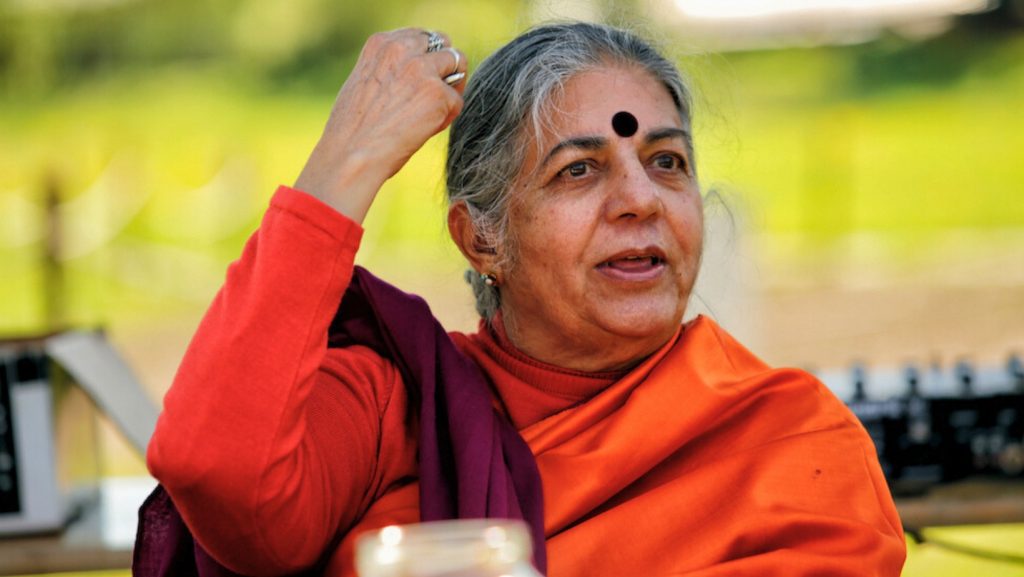
Her speech was one part of the Global Bean Project’s 2023 Seed Festival and kicked off the online programme. Along with a speech from French chef Xavier Hamon, there were also contributions from six of the project’s partner organisations who were simultaneously running seed festivals in their local communities.
As visitors to the Berlin event enjoyed some hearty legume-based fare, they listened to Shiva’s rousing address. She described the human and environmental impact of farming with genetically modified seeds and urged listeners to respect the integrity of plants.
Representing the Alliance of Free and Living Tables, Xavier Hamon spoke about the politics of gastronomy in France. “I am very proud that a cook has been asked for political comments,” he explained. “It means that the view of our profession is starting to change.”
Hamon lamented the losses that have been faced in both the gastronomic and agricultural sectors, with many people losing their connections to the natural world. Ending on a hopeful note, he encouraged listeners to reclaim power over food systems and fight for the common good.
Also joining from France, Jean-François Tedesco introduced an intriguing project, describing how the rare ‘Meat Bean’ from the Rhône-Alpes region was saved from extinction through DIVINFOOD’s Living Labs initiative. Testing the bean in different growing conditions, looking into its economic viability, and working with a range of different chefs, their project explored the bean’s entire lifecycle from seed to plate.
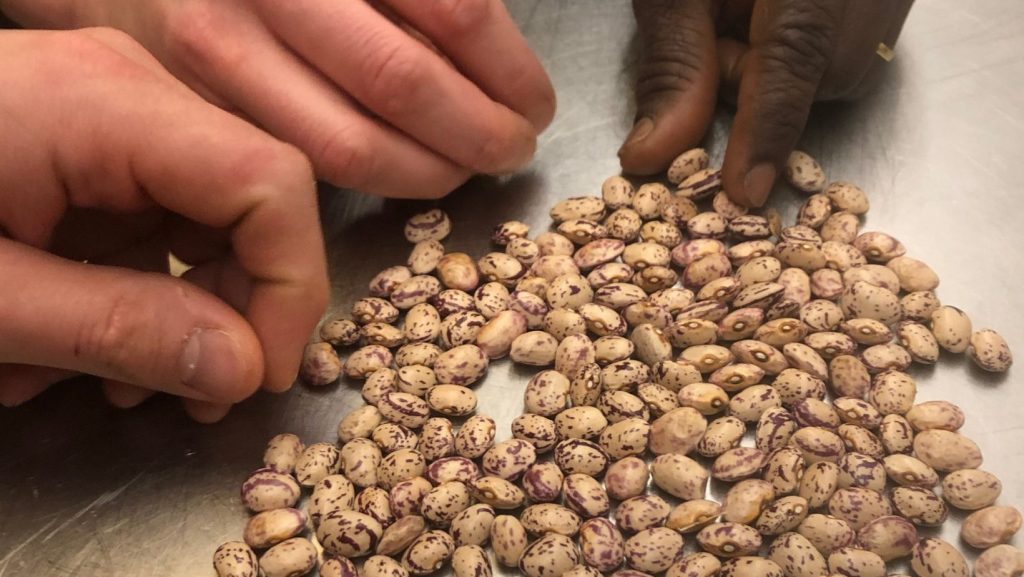
With a long history of cultivation in the region, the Catalan Cowpea has a more subtle taste compared to the widely known black-eyed pea. Nicolas Carton explained that in the past, many families would have grown it at home, however, large-scale cultivation is less common these days due to decreasing rainfall at the end of spring and high production costs. Since different parts of the crop mature at different times, mechanizing the production process is challenging, and growing this under-exploited legume requires a significant amount of hands-on labor.
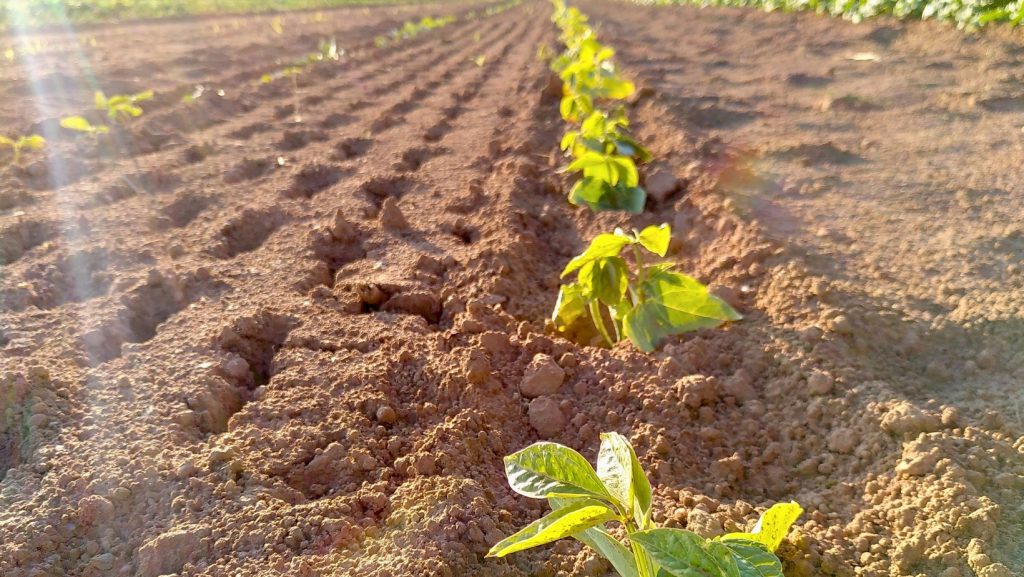
Established in 1997, Albania’s Organic Agriculture Association has played an important role in promoting organic farming in the country. Lavdosh Ferrunni gave a virtual tour of their well-attended seed festival in Korça. The attendees, including the mayor of the municipality, raised their glasses, saying “Gëzuar,” meaning cheers.
In Gidole, Ethiopia, Amanuel Samuel of the Gardula People’s Development Association presented one of their gardens, focusing specifically on the pigeon pea. He described how farmers had gathered to share their knowledge about legumes and exchange seeds during the event.
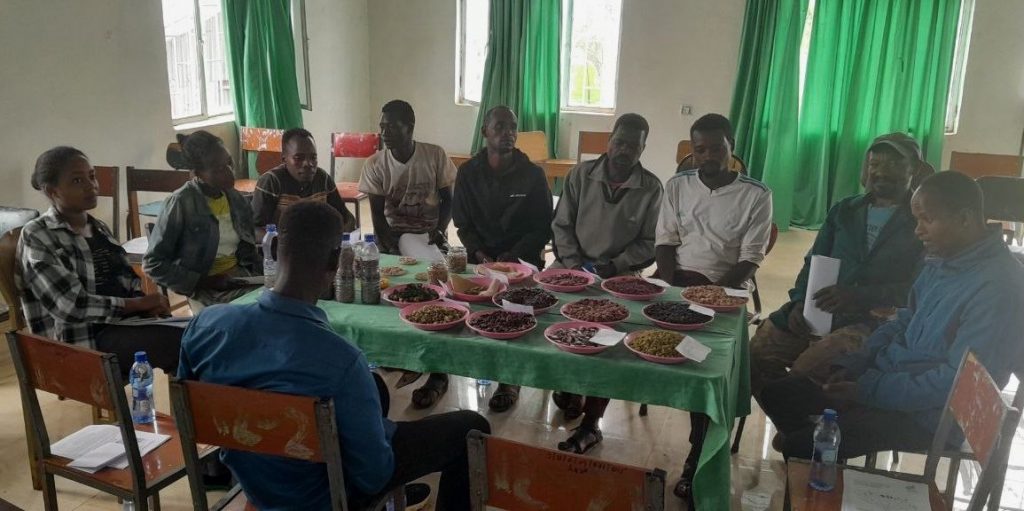
Mercy Ambani of Seed Savers Network Kenya welcomed us to their seed bank and introduced various local legume varieties. They had also created artwork that read “My Seed, My Food, My Future.” “If a family is not seed secure, then they are not food secure,” she explained, underlining the importance of the work that their network does.
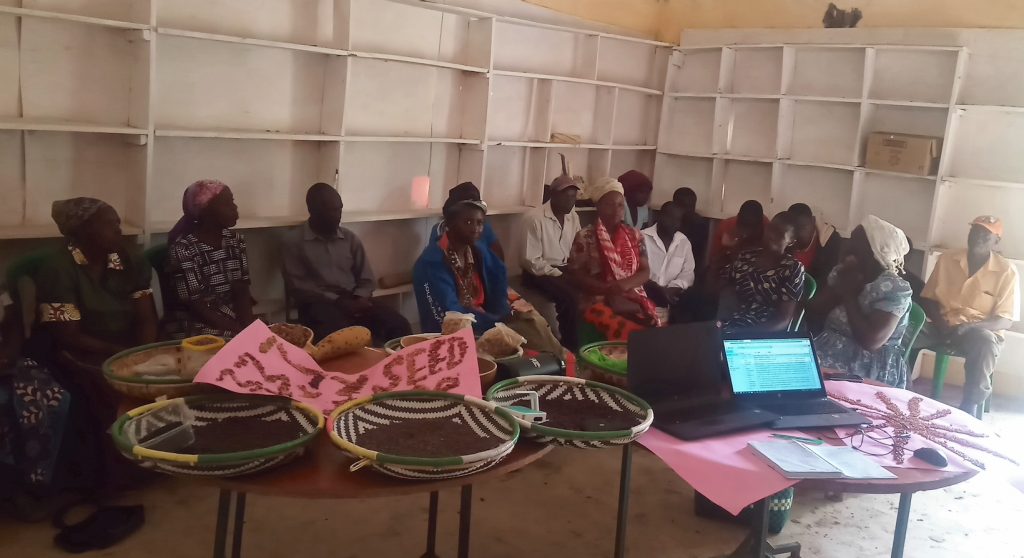
In rural Austria, Michaela Arndorfer introduced the Arche Noah Association and showcased some local legume varieties. Alongside saving and multiplying seeds, they also disseminate information and advocate for agro-biodiversity-friendly legislation in Europe.
The range of organisations and attendees who participated in this year’s seed festival gave a sense of the growing interest globally in seed saving and legume cultivation. With shared goals in mind, the events showcased the diversity of legumes, along with the expertise of passionate seed savers from around the world.
Many thanks to everyone who helped to make this year’s seed festival a success. Much appreciation to Vandana Shiva, Xavier Hamon, our partner organisations, and everyone else who helped out with the events!
Sign up for our newsletter here to stay up to date about future events. You can also find out more about upcoming and previous events here.




